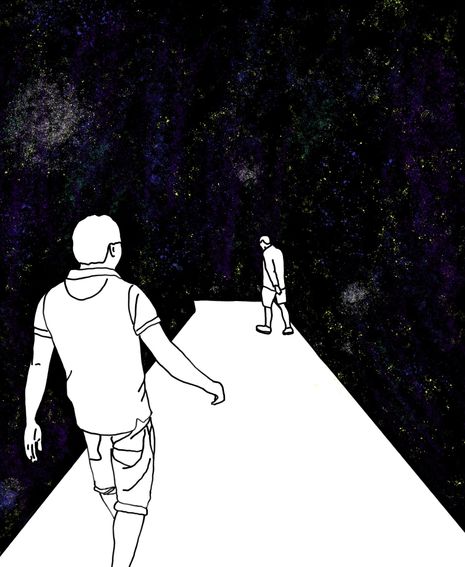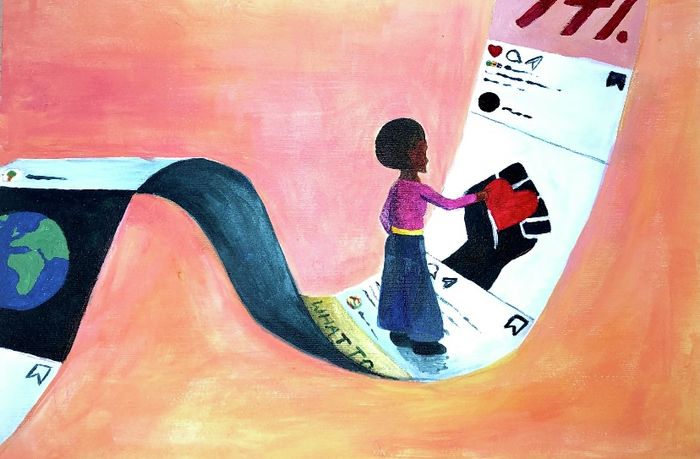The surprising allies at my college
“I was completely taken aback by the people that showed support during times of difficulty.” Kyieron Clarke writes about the individuals who helped him through university

Content Note: This article contains detailed discussion of racism and brief mention of sexual assault.
Having grown up in South East London, I got quite used to being around people who understood my background and culture. Many of my friends have grown up in poverty and know how it feels to be racially profiled and labelled with stereotypes. It felt obvious that these issues would persist while studying at Cambridge, and would likely be worse because I no longer had the safety net of having people who could directly relate to my experiences and offer support.
When I started studying at the University of Cambridge, I continued to have these insecurities. I had chosen a college known to be quite traditional, and I went in expecting that the other students would fail to relate to my lived experience. I was concerned that they would not be sensitive to feelings of isolation and that claims of racial prejudice would not be taken seriously. However, after studying at Cambridge for nearly three years, I am taken aback by the support shown by some of the members of my college community. In a society where division is rife, and somewhat of a regrettable norm, I feel that it is necessary to give credit where it is due.
I think one of my concerns when I started studying at Peterhouse was that there were many students from private schools. Initially, having grown up attending a state school, I thought this would mean that I would not “fit in”. This turned out to be only partially true; whilst some groups were exclusive and had tastes that were different to my own, there were also people who I shared similar interests with and could relate to.
I remember my first day quite vividly. I met a student who went to one of the best private schools in the country. He was what I imagined when I thought of a private school student but despite this, I was struck by his genuineness and interest in my background. We became friends almost instantly. He was eager to share his taste in fashion and music with me, while I returned the favour. I think one of the greatest things about him is that he is equally as proud of his background as I am of mine, this allowed us to have a unique friendship where we both actively challenged our own preconceptions about our respective cultures.
There were several memorable moments which stuck out to me, some of which concerned our discussions about mental health, our respective coping mechanisms, and the varying stereotypes which existed within our communities. I think the most touching moment was when he stated, “I do not know much about race or your experiences”. Yet, when I asked him about why people accused me of hating my own race for choosing to be friends with him, he correctly stated “I think they might have their own view of what a Black person is, that is not your fault, it’s theirs”.
“The presence of allies who showed kindness and support reassured me that my college and community is going in the right direction”
I was surprised by my friend’s response; but he had hit the nail on its head. By being honest about how he felt, he recognised the ever-present forms of labelling that are prevalent within the University setting and society at large. This made me reconsider my own prejudices. Prior to studying at Cambridge, I believed that private school students would be ignorant to instances of racial profiling because ethnic minorities represent a low percentage of their student population. However, he had addressed this concern in his own capacity by choosing to be a good friend.
I think one of the most inspirational allies at my college is a staff worker whose vocal anti-racist views made me feel included. This ally was married to a person of colour. I remember telling them “I do not think I deserve to be here”. They responded fiercely: “Do not ever say that. You have worked hard to get here. You might not feel like you deserve to be here but that is because many people ignore the existence of Black people and their lived experiences”. I was incredibly grateful for this response – not only was it true, it also made me feel better. Although I found it hard to convince myself that I deserved to be at Cambridge, what they had told me did make sense. Their sharp but comforting words helped me realise that despite my self-doubt, what they were saying was true.
This person became so important to me because they managed to do the job that many welfare officers at my college have found incredibly difficult. They simply listened, observed, and gave their honest opinion.
Inclusivity at my college went beyond the close friends and domestic workers with whom I interacted daily. I have had many fortunate encounters with senior and pastoral members who have expressed no tolerance for racial prejudice. Once, when I discussed an instance of racism with a tutor, I was told: “There are a lot of people who are quite intelligent here. However, when it comes to doing the very simple thing of treating people from different backgrounds with the respect they deserve, they do not understand how to. That may not be their fault, but it is certainly not yours.” This was comforting to hear, since I no longer had to doubt that my experiences were real and that others often failed to challenge their own preconceptions.
Similarly, when reporting an instance of physical and sexual assault, a pastoral member expressed great sympathy, while also advising me not to “bottle things up” but to write down each incident. They also directed me to the relevant authorities. Again, this person might not have known that being a black male from a Jamaican background, we are often told not to speak about such occurrences. The pastoral member’s encouragement to deal with the issue appropriately was admirable. He was attentive and treated the issue with the seriousness it deserved.
The very existence of some of the issues I faced at my college suggests that structural change is needed. However, the presence of allies who spot these issues and remedy them through showing kindness and support has reassured me that my college and community is going in the right direction. The addition of Dr Jennifer Adams, an anti-racist trailblazer who has experience working with the NAACP, as the welfare officer at Peterhouse suggests that the college is trying to continue to tackle the issue of racism. Dr Adams has already set up her own anti-racism focus group whereby she educates other white people on the experience of racism through the lens of those within the BAME community.
The last three years have not only allowed me to examine my own prejudices, but have also shone a light on several members within my college who do not claim to understand my experiences but instinctively know how to offer support. In a society where structural racism is pervasive and it would seem that there is no hope, it was individuals who were supportive and offered me a helping hand. They understood that as a person of colour, I do not desire special treatment, but that I deserve fair and equal treatment.
 News / Cambridge study finds students learn better with notes than AI13 December 2025
News / Cambridge study finds students learn better with notes than AI13 December 2025 News / Cambridge Vet School gets lifeline year to stay accredited28 November 2025
News / Cambridge Vet School gets lifeline year to stay accredited28 November 2025 Science / Did your ex trip on King’s Parade? The science behind the ‘ick’12 December 2025
Science / Did your ex trip on King’s Parade? The science behind the ‘ick’12 December 2025 News / Uni Scout and Guide Club affirms trans inclusion 12 December 2025
News / Uni Scout and Guide Club affirms trans inclusion 12 December 2025 Arts / Modern Modernist Centenary: T. S. Eliot13 December 2025
Arts / Modern Modernist Centenary: T. S. Eliot13 December 2025








